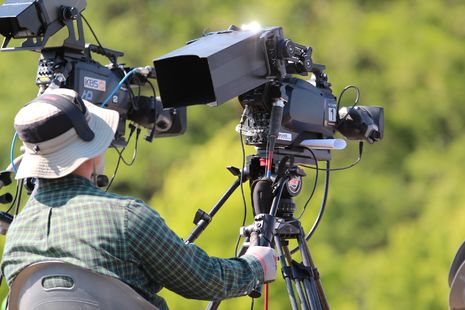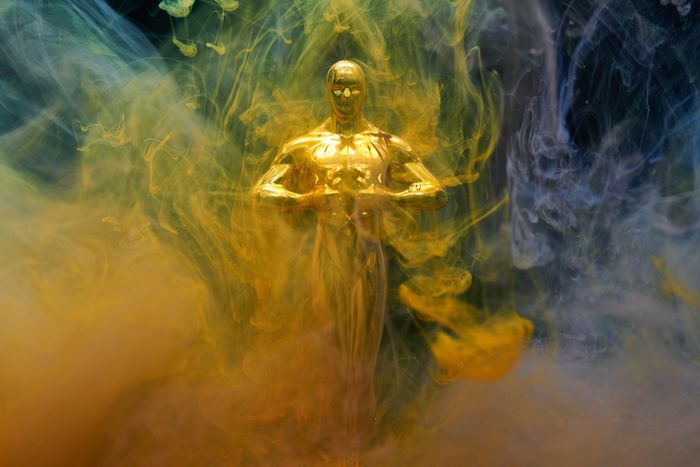Channel 4 is a national treasure, and one we cannot lose
When Channel 4 was threatened with privatisation, there was national outrage; Alice Burton tells us why

In 2021, the UK Government first announced their review of the ownership of Channel 4. The channel has been publicly owned since its creation under Margaret Thatcher in 1982; however, under Boris Johnson’s government, Culture Secretary Nadine Dorries proposed it be sold to a private owner, with the rationale of “ensur[ing] Channel 4’s future sustainability as a public service broadcaster”, particularly in the face of global streaming giants.
But, after an outpouring of protests, petitions and a “Channel 4 ain’t broke” campaign, her replacement, Michelle Donelan, eventually announced a U-turn and vowed to keep it under public ownership. Now the dust has settled, we can look back at what exactly was at stake for the British creative industry.
Channel 4 is the only public service broadcaster that is publicly owned but commercially funded. Rather than being solely profit-driven, Channel 4’s focus is on telling important stories and creating quality productions, as all profits must be reinvested into more content. Also, unlike the publicly-funded BBC, its content cannot be self-produced. All productions are commissioned exclusively to external businesses.
What does that mean for the British population? Well, not only does Channel 4 not cost us a penny but, as a public service broadcaster, it also has to fulfil its commitment to producing “innovative, creative and distinctive” content, and to “take account of cultural diversity”. It has historically taken this responsibility quite seriously, describing its purpose as “creating change through entertainment”: the company is committed to representing minority voices, holding power to account, creating innovative content, and reaching new audiences.
“It has been a champion of creative industries in all the nations and regions”
It’s not just diverse voices on screen at stake, but those behind the camera too. Channel 4 contributes meaningfully to ‘levelling up’; in 2020, 58% of its content was produced outside of London, compared to 48% on ITV and 21% on Channel 5. It has been a champion of creative industries in all the nations and regions, committing to spending 50% of its budget outside the capital by the end of this year, and providing creative opportunities up and down the country. Privatisation could have seen these priorities shift towards brutal ‘efficiency’ and ‘profitability’ at the expense of encouraging creative talent across the UK.
Their commission-only model means they work with 300 different creative companies a year, 140 of which rely on Channel 4 for more than half of their revenue. Channel 4 allows small and independent creative companies to flourish, enabling stories that may be overlooked by bigger producers and broadcasters to reach our screens.
Russell T Davies, creator of both Queer as Folk in 1999 and It’s a Sin in 2021, has discussed how Channel 4’s support confirmed his “hope that original work could be done”; that minority voices could be amplified by major broadcasters when they might have otherwise been seen as “too risky”. In 1999 his story of three gay friends living in Manchester was a story deemed worth telling, and so was his 2021 chronicle of queer youth living in 1980s London in the face of the HIV/AIDS crisis. His shows struck a chord with British people: audiences still reach out to him to share how his work impacted them, and charities reported record HIV test orders following It’s a Sin’s release. This is the real value of public service broadcasting.
“Charities reported record HIV test orders following It’s a Sin’s release”
By allowing minority groups to see themselves on screen, they can recognise themselves as belonging to British culture and identity; Channel 4 promotes, as they describe, “social cohesion and a shared national identity”. It is also in the unique position of attracting more younger viewers than any other major broadcaster. Domestically, but also internationally, Channel 4 represents the infinite shades of what it means to be ‘British’, and the different ways we can live our lives while sharing a common sense of belonging.
So perhaps the outcry was justified, and the salvaging of Channel 4 from private markets really ought to be celebrated. If profit had become the ultimate goal of the channel, its contribution to creating “uniquely British TV” and to representing unheard voices was at risk of falling by the wayside. Instead, Channel 4 allows people from every corner of British life to recognise themselves on screen, as well as giving them the opportunities to create in the first place. This, surely, is worth more than the potential sale Dorries lamented losing on Twitter after the U-turn was announced.
Rishi Sunak’s government appears to have recognised this and, for now, Channel 4 is safe – though the risk of losing it has helped us realise its status as a true national treasure.
 News / University Council rescinds University Centre membership20 February 2026
News / University Council rescinds University Centre membership20 February 2026 News / Hundreds of Cambridge academics demand vote on fate of vet course20 February 2026
News / Hundreds of Cambridge academics demand vote on fate of vet course20 February 2026 News / Judge Business School advisor resigns over Epstein and Andrew links18 February 2026
News / Judge Business School advisor resigns over Epstein and Andrew links18 February 2026 News / Caius students fail to pass Pride flag proposal20 February 2026
News / Caius students fail to pass Pride flag proposal20 February 2026 News / Union cancels event with Sri Lankan politician after Tamil societies express ‘profound outrage’20 February 2026
News / Union cancels event with Sri Lankan politician after Tamil societies express ‘profound outrage’20 February 2026










